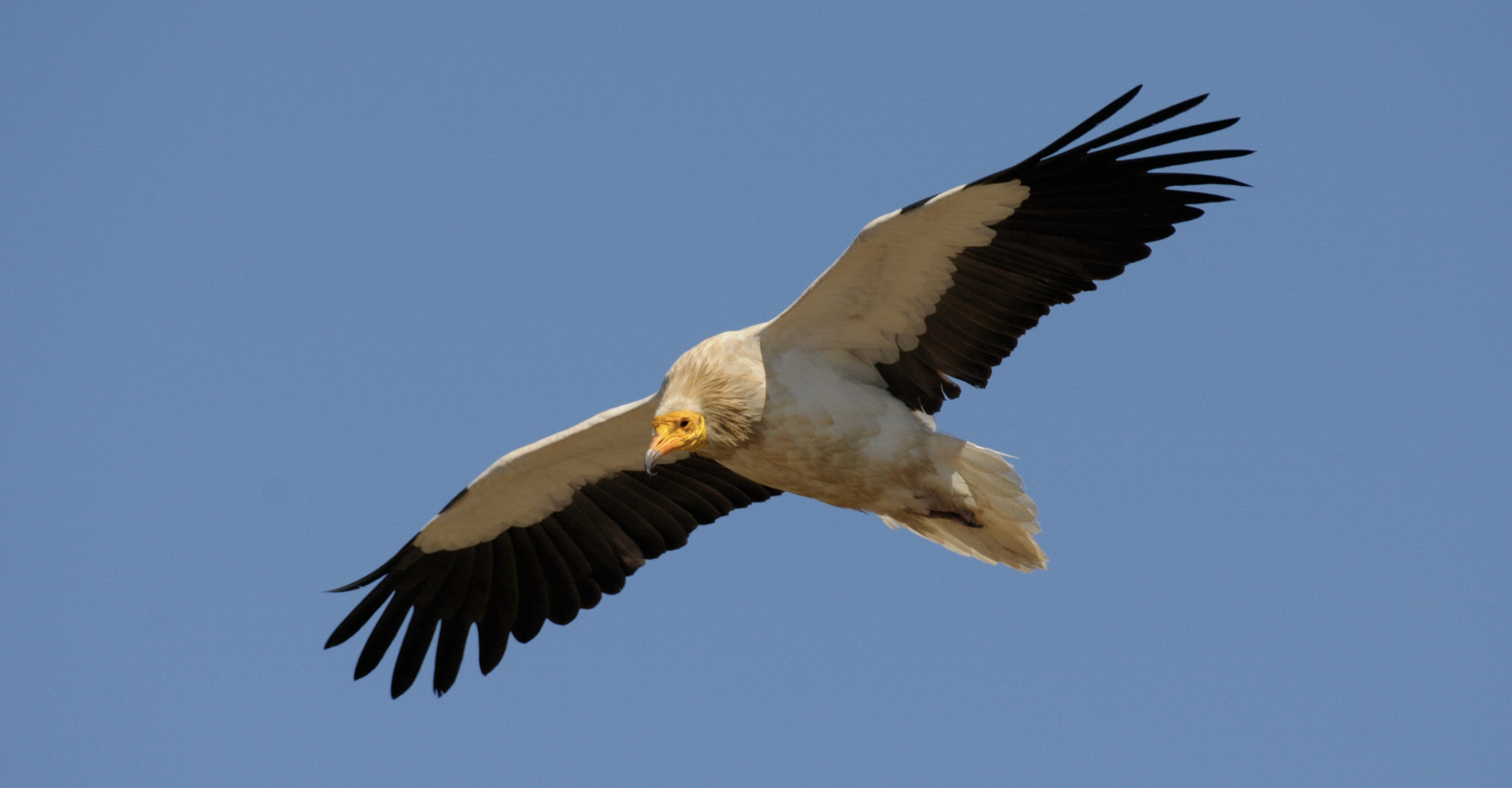The Egyptian vulture is the most threatened vulture species in Europe – considered Endangered at global level, it is still declining in most places across its vast range. The Balkan population is declining more rapidly than elsewhere (80% in the last 30 years), and now numbers less than 60 pairs.
Several factors are probably contributing to this, but all research so far suggests that adult mortality due to poisoning, electrocution, migration, and other factors, is driving this negative trend.
The species has an opportunistic and diverse diet, but there have been relatively few studies on diet composition in the Balkans. As part of the LIFE+ project “The Return of the Neophron”, currently being implemented, the diet of birds from 51 breeding territories in Bulgaria and Greece in the period 2005–2013 has been analysed, in a total of 3,237 food remains identified, belonging to 136 species (32 orders). This study offered an excellent opportunity to relate demographic parameters with diet.
The authors found that the diet of the Egyptian vulture in the Balkans is very diverse, but it has not changed significantly over the last 9 years. Wild animals were dominant (71% of prey items collected), and mammals were the most represented in the food remains (49%), followed by reptiles (28%) and birds (22%). The most abundant species were tortoises (Greek tortoise, Testudo graeca, 13%, Hermann’s tortoise Eurotestudo hermanni, 11%), and domestic chicken (Gallus gallus f. domestica, 7%).
More importantly, there was no relationship between diet diversity or composition and breeding productivity, suggesting that food is not a critical threat to Egyptian vultures in the Balkan Peninsula. However, territory occupancy rate seemed to increase with the proportion of livestock in the diet, suggesting that access to livestock carcasses is beneficial for the species. You can download the full report below
![]() LIFE+ project “The Return of the Neophron” report on diet of Egyptian Vulture in the Balkans LIFE_Neophron_A5_Diet_Report.pdf Adobe Acrobat Document 2.8 MB Download
LIFE+ project “The Return of the Neophron” report on diet of Egyptian Vulture in the Balkans LIFE_Neophron_A5_Diet_Report.pdf Adobe Acrobat Document 2.8 MB Download


